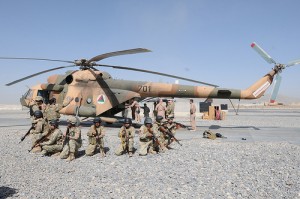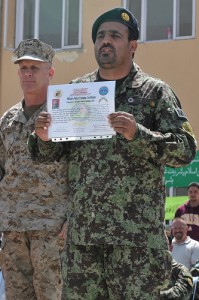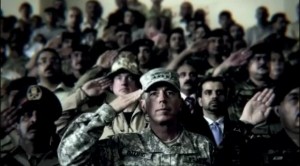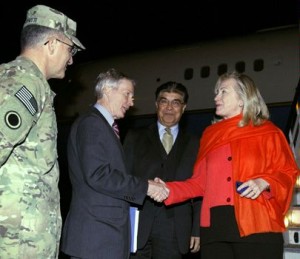The McChrystal Apologists Ignoring McChrystal’s Own Take
The WSJ has a scathing critique of Michael Hastings’ The Operators (see Spencer’s more interesting take here). While it complains that Hastings doesn’t profile local indigenous groups and conflates hating the Afghan war with being antiwar, its chief complaint is that “antiwar” journalists damage war efforts.
During the Vietnam War, the generation of David Halberstam and Neil Sheehan transformed America’s mainstream media into a hotbed of antiwar and antimilitary muckraking. By the time a major war effort returned, in 2003, that generation had grown too old to visit the trenches, allowing the emergence of Generation X reporters like Dexter Filkins and George Packer, who did not share their predecessors’ contempt for the military. Most Americans welcomed the change.
Not so Michael Hastings, as we learn in “The Operators,” his account of events in Afghanistan from 2008 to 2011. Mr. Hastings asserts that this generational change drove him to write “The Runaway General,” the Rolling Stone article of June 2010 that doomed the career of Gen. Stanley McChrystal, commander of coalition forces in Afghanistan. With characteristic acerbity, Mr. Hastings laments that his press colleagues have abandoned the spirit of Vietnam, when “war had been exposed as the Giant Lying Machine, in Halberstam’s words.” Instead, he says, they write glowing profiles of generals and other officials in the hope of gaining greater access to sources.
Mr. Hastings singles out, as an example of such truckling, “Stanley McChrystal’s Long War,” an October 2009 profile by Mr. Filkins in the New York Times. Yet the most cursory reading of that piece reveals that Mr. Filkins soberly detailed Gen. McChrystal’s mistakes as well as his triumphs. Mr. Filkins is perhaps now a target because he publicly expressed doubts about “The Runaway General” after its publication. Charlie Rose, on his PBS program, asked Mr. Filkins about quotes in the article that appeared to show Gen. McChrystal and his staff disrespecting President Obama, Vice President Biden, National Security Adviser James Jones and Special Representative Richard Holbrooke, not to mention the French. Mr. Filkins responded: “I spent a lot of time with General McChrystal and the people around him, and I never heard that.”
[snip]
Like David Halberstam and Neil Sheehan, Mr. Hastings ignores the harm that his reporting caused to America’s overseas interests. The firing of Gen. McChrystal removed the one American who enjoyed the confidence of Afghan President Hamid Karzai and of Ashfaq Parvez Kayani, chief of staff of Pakistan’s army.
Hastings is a bad journalist, according to reviewer Mark Moyar, because he exposes that war is built on lies. (Never mind that Moyar provides no proof for his claim that “most Americans” welcomed having shills cover wars rather than journalists.)
Which is why McChrystal’s own comments about war and lies–as reported by Hastings–are so interesting. McChrystal–who, as Hastings reminded, had been a spokesperson during the Iraq War–admitted that the military co-opted the media to cover up the (correct) fact that they believed the war was a bad idea.
We started talking about larger issues within the media, which I felt he was in a unique position to discuss. McChrystal was a spokesperson at the Pentagon during the invasion of Iraq in March of 2003, his first national exposure to the public.
“We co-opted the media on that one,” he said. “You could see it coming. There were a lot of us who didn’t think Iraq was a good idea.”




